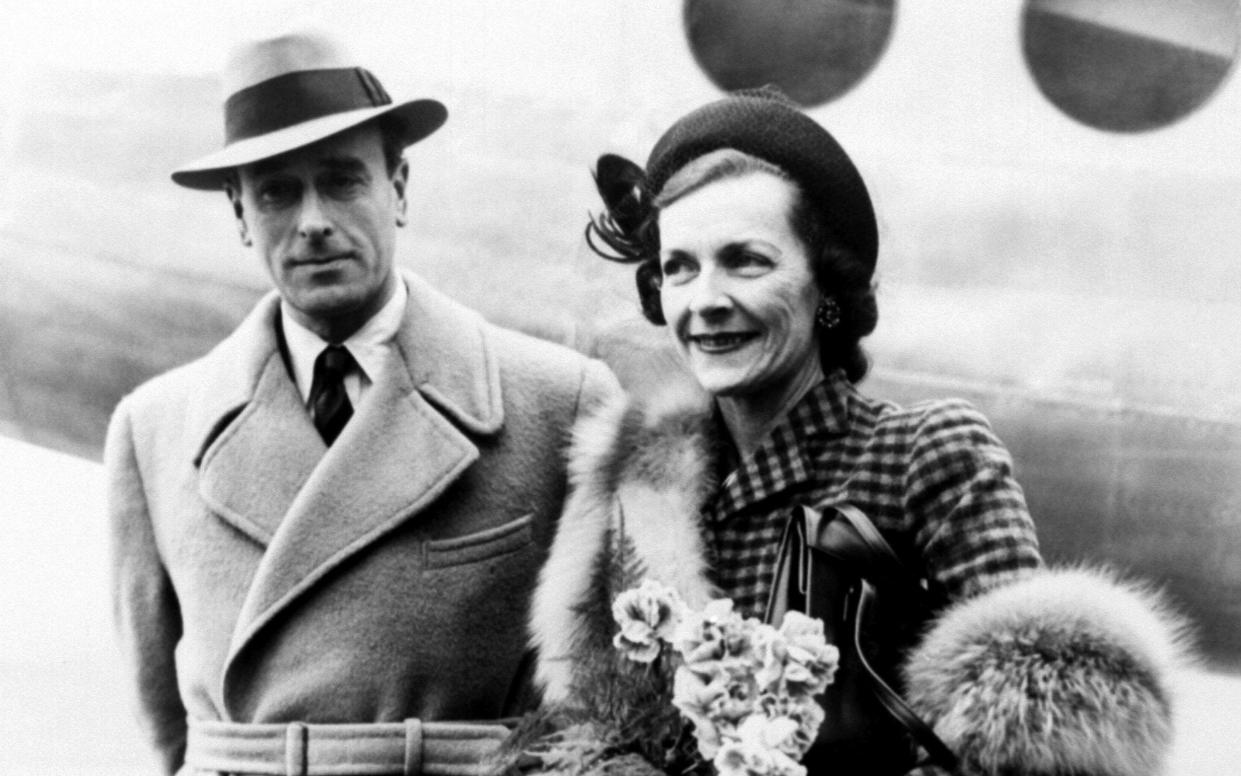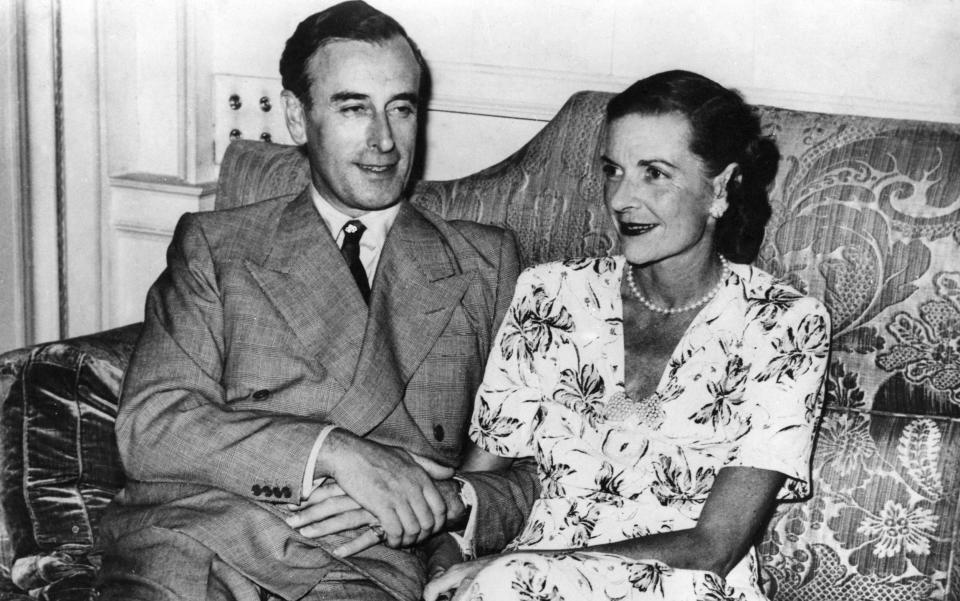Release Lord Mountbatten diaries 'without delay', urge MPs

- Oops!Something went wrong.Please try again later.
The private diaries and correspondence of Lord and Lady Mountbatten should be released "without further obfuscation and delay," MPs have urged.
The archive, including other documents, was bought from the Mountbatten family trust with £4.5 million of public money in 2011 and is held at the University of Southampton.
It was claimed at the time of purchase that the diaries, written from 1918 until 1979, when Lord Mountbatten was killed by the IRA, would be made “available to the nation” but despite a six-year campaign by biographer Andrew Lownie, which has cost him £250,000 of his life savings, they remain under wraps.
Mr Lownie, author of The Mountbattens: Their Lives & Loves, believes they are being withheld due to royal references.
But he told the Telegraph the government had no grounds to withhold the diaries and were “deliberately conflating” undertakings relating to official documents Lord Mountbatten had taken home from work and his private correspondence.
“It’s a piece of censorship,” he said. “These are private letters and diaries which his family offered to sell to the highest bidder.
“They were accessible to researchers before they were sold, they have been quoted in books.
"Any undertakings given related only to official papers in his possession and predated the Freedom of Information Act 2000. It is crucial the Government are held to account to explain their censorship."
A cross-party group of MPs, led by senior Conservative Julian Lewis, raised concerns over the lack of access to the diaries, highlighting Mr Lownie’s ongoing campaign.
In early day motion tabled in the House of Commons, they state: "That this House notes... that, until the sale to the university, the Mountbatten family had made the diaries available to historians upon request; that Lady Mountbatten was never a public servant and consequently her writings are not subject to Freedom of Information restrictions; that in December 2019 the Information Commissioner's Office ordered the university to disclose the Mountbatten diaries and correspondence; that this continues to be resisted at the apparent direction of the Cabinet Office, citing FOI (Freedom of Information) exemptions but refusing to identify the criteria relevant to the Mountbatten diaries."
The motion adds: "It is deeply regrettable that their distinguished biographer, Dr Andrew Lownie, has so far had to pay £250,000 pursuing a campaign for the diaries' release to historians; and accordingly calls for their disclosure for publication without further obfuscation and delay."

Cabinet Office minister Julia Lopez, said in response to written parliamentary questions: "Before he retired as Chief of Defence Staff in 1965, the first Earl Mountbatten accepted that personal diaries could not be put into the public domain without first being vetted.
"Earl Mountbatten made clear that ownership of all of these papers would be handed over to the Broadlands Trustees.
"In 1969, the Broadlands Trustees entered into undertakings not to give general or particular access to these papers without the express permission of the Prime Minister of the day through the Cabinet Secretary. A copy of the undertakings is available at the National Archives.
"In line with this agreement, the Cabinet Office is continuing to work with the University of Southampton to support the release of the Mountbatten archive whilst ensuring sensitive and official information is handled appropriately and in line with the Freedom of Information Act and Data Protection Act.
"This case is currently before the Information Tribunal. It would not, therefore, be appropriate to make further comment whilst this is subject to ongoing legal proceedings."
The university describes the Mountbatten Papers as an archive of the "first importance for the study of much of the 20th century", and it includes around 4,000 files of papers of the earl.
Access to the database is "by permission only", with a registration process to be followed, according to the university.

